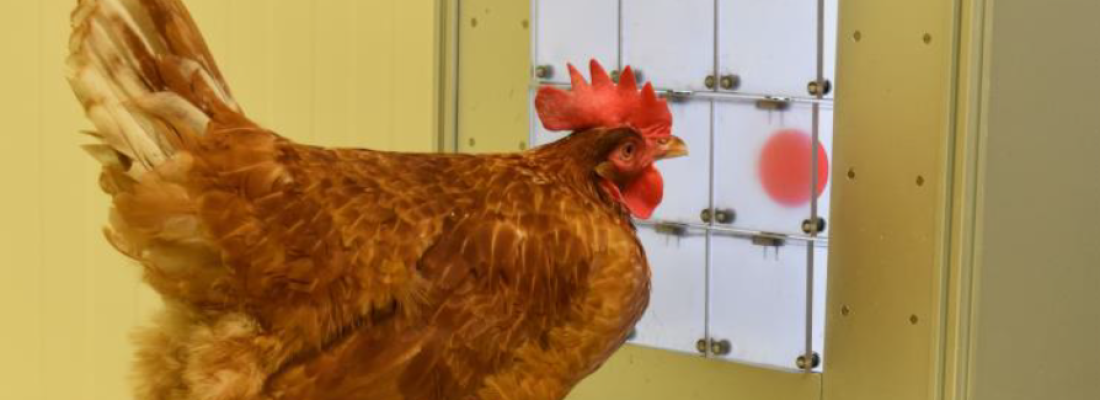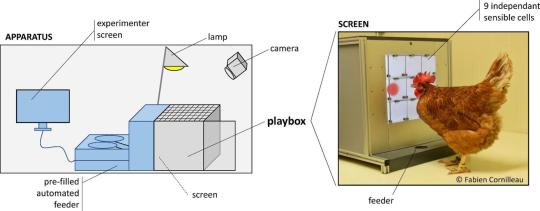Agroecology Reading time 3 min
Cognitive capacities of domestic hens: surprising results!
Published on 31 January 2023

Improving the welfare of farm animals depends on our knowledge on how they perceive and interpret their environment; the latter depends on their cognitive abilities. Hence, limited knowledge of the range of cognitive abilities of farm animals is a major concern. An effective approach to explore the cognitive range of a species is to apply automated testing devices, which are still underdeveloped in farm animals.
In screen-like studies, the uses of automated devices are few in domestic hens. We developed an original fully automated touchscreen device using digital computer-drawn colour pictures and independent sensible cells adapted for cognitive testing in domestic hens, enabling a wide range of test types from low to high complexity.

This study aimed to test the efficiency of our device using two cognitive tests. We focused on tasks related to adaptive capacities to environmental variability, such as flexibility and generalisation capacities as this is a good start to approach more complex cognitive capacities. We implemented a serial reversal learning task, categorised as a simple cognitive test, and a delayed matching-to- sample (dMTS) task on an identity concept, followed by a generalisation test, categorised as more complex.
In the serial reversal learning task, the hens performed equally for the two changing reward contingencies in only three reversal stages.
In the dMTS task, the hens increased their performance rapidly throughout the training sessions. Moreover, to the best of our knowledge, we present the first positive result of identity concept generalisation in a dMTS task in domestic hens. Our results provide additional information on the behavioural flexibility and concept understanding of domestic hens. Video below:
They also support the idea that fully automated devices would improve knowledge of farm animals’ cognition.
Degrande R, Cornilleau F, Lansade L, Jardat P, Colson V, Calandreau L. (2022). Domestic hens succeed at serial reversal learning and perceptual concept generalisation using a new automated touchscreen device. Animal. 16, 8 http://dx.doi.org/10.1016/j.animal.2022.100607
